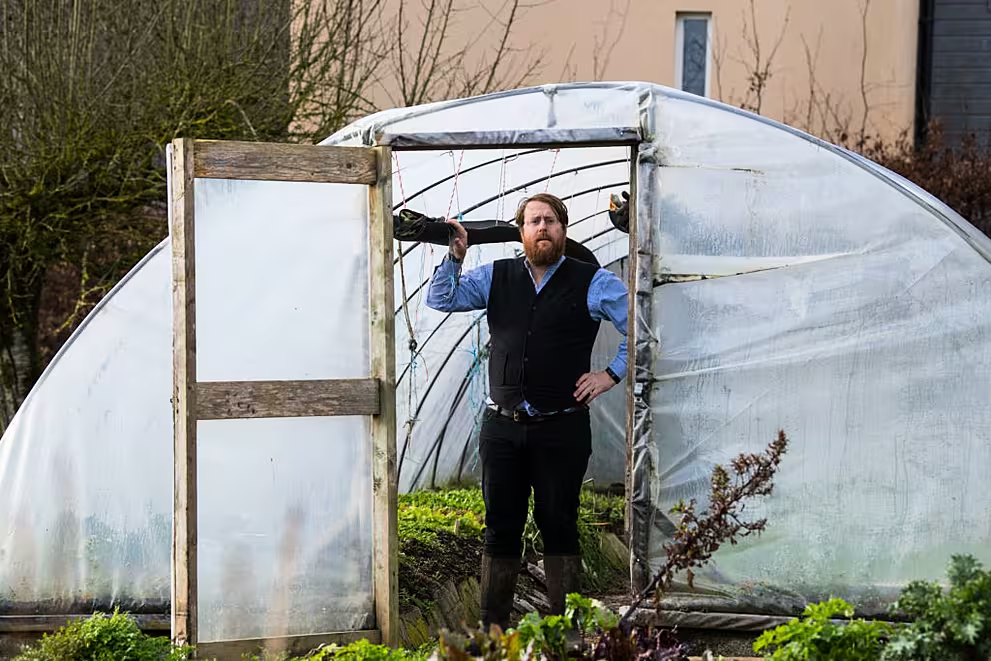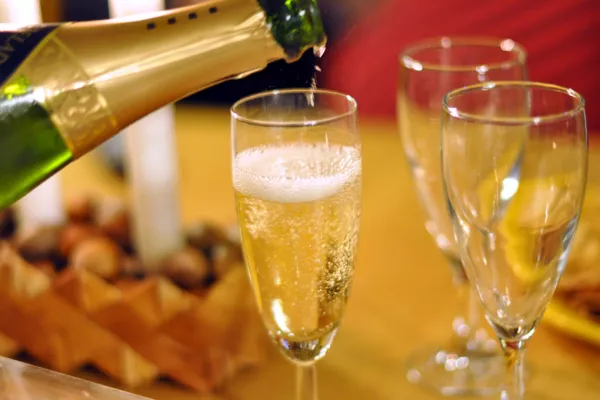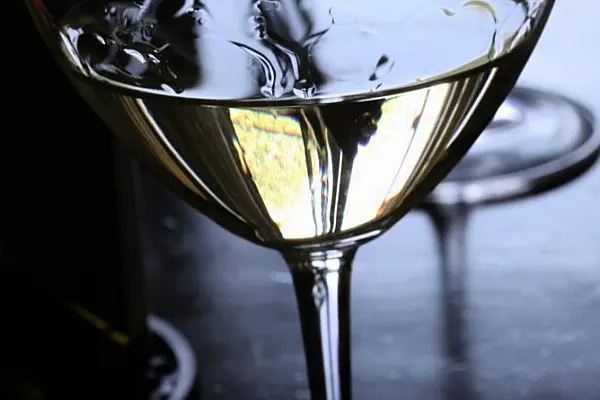JP McMahon talks to Hospitality Ireland about the challenges facing the industry now, the synergies of his three Galway restaurants – Aniar, Cava and Tartare – what keeps him going.
This article was originally published in the Summer 2022 issue of Hospitality Ireland Magazine, in July of 2022.
How does it feel to be back organising Food on the Edge?
It’s great. We had it in some capacity last year, but at about 50%. There were good and bad aspects with the online version and having speakers online, but it’s great to have our full 50 speakers and a bigger audience again. I’m really looking forward to it.
What is your assessment of where we’re at? How has business been since reopening for you?
It’s up and down. We’re certainly in a very in-between space. We had a little bit of a bump in February because we just opened at the end of January. Then March wasn’t great. The Easter holidays were good – the down times are certainly quieter – and it’ll be interesting to see how the summer goes.
Weekends can be busy, particularly bank holiday weekends, but the bits in between – it’s about carefully balancing. If we could make the restaurant four times bigger on a Saturday, that would be great – and then fold it all back in on a Monday or Tuesday – but that’s not possible.
It seems that plenty of people are eating out at very high-peak times, but fewer people are going out midweek. That’s possibly due to increased costs to disposable income – even for ourselves, our electricity costs have trebled. The cost of a lot of our produce has gone up, so it’s trying to balance that out without putting too much extra on the menu. It’s a balance between what we can absorb for the moment and what will be passed on to the customer. It’s certainly difficult right now.
There are certainly many factors. Energy prices are big for everybody. The cost of war is beginning to trickle down, even to us here. I suppose that, too, ends up being reflected?
Absolutely, and I’m sure that will have a longer impact in terms of food prices, particularly grain from Ukraine, corn, and rapeseed oil – all of these things. When you think about commodities like flour and oil and electricity, they’re very much in the background. They’re generally a fixed cost.
This is really the first time in as long as I can remember where we’re so conscious of energy, of what needs to be on when – does the heat need to be on now? For example, the cost of electricity in carbon is usually about €25,000 a year, and that is projected to be €75,000 this year, so that’s €50,000 we have to find somewhere else – or we have to really look at how we reduce our energy costs. Maybe we can reduce a third of it, but it’s certainly looking to see where we can get money from elsewhere.

How do you feel, then, as you look ahead? Do you feel optimistic, confident, or is it very much one day at a time?
It’s a day at a time. When I see places closing – I’ve always seen a few places close around Ireland, but now more than ever. I don’t think everyone is going to survive. We have three venues and they work symbiotically, but, even so, Cava would outperform the other two. So, who’s to say?
It is getting more difficult to run a small business. The larger the business, that’s when you can spread costs better and you can look for bulk prices. When you’re a small business, it’s certainly difficult, so I do think a lot of small to medium-sized businesses are going to feel the pinch – and I don’t think we’re finished with Covid yet. We’re still losing days when staff contract Covid, and all the government supports are gone now. You just try and say that next week is going to be better and keep hoping, but it is difficult at the moment.

Is the danger, then, that a few large hospitality groups end up completely dominating the market, which isn’t good for consumers or the diversity of offerings?
Yes. The more small businesses that go, or that get assimilated, the more the diversity shrinks. A lot of microbreweries are getting assimilated, for example – and I don’t blame these smaller businesses because it is so hard at the moment. If someone comes and says “Do you want me to take this off your hands? It would keep the brand going,” it’s difficult to say no, but I do worry.
If we lose more and more small businesses, then there’s lack of diversity, lack of choice, lack of community. Community is such an important aspect that small businesses and small restaurants create, and I do think it’s really important. I think some of this is down to the government and how they can tackle energy costs, but certainly our big costs at the moment are energy. Then rents are going up. It seems that something has to give because we can’t keep putting money on the menu and hoping that people keep being able to pay it.
It’s important for the customer to realise that the margins are very small in restaurants. When they see dishes that seem expensive, it’s not the restaurant that is making big bucks out of it. The margins are three or four – maybe five per cent. In many other businesses, the margins are far higher.
What about staff shortages? Is that something that you are still being impacted by?
Yes. In Tartare, we’re looking for staff and we don’t have excess staff, so if someone gets sick, we have to reduce the hours we’re open. If a chef goes on holiday for a couple of weeks, we have no chef to replace them. We don’t have anyone spare at the moment to cover, and I suppose people are tired.
That’s one of the reasons why people are leaving the industry – because there doesn’t seem to be any let-up. Every week it’s like, “Look, we need you for a bit extra.” Our staff are great, but there’s only so long your staff can help you out before you all just run out of energy.
We put ads out and we get a few CVs in, but we’re missing a lot in the middle. There seems to be expertise at both ends – you have a lot of commis chefs or chefs de partie – then you have the head chefs or experienced chefs looking for work, but there’s a huge gap in the middle: chefs with a couple of years’ experience. That is where we’re really lacking. I find either the chef doesn’t have enough experience, or the chef has too much experience. It’s very hard at the moment to find someone in the middle.

That is something, presumably, that the government could be helping with, in terms of expediting visas?
Oh, a hundred per cent. I remember applying for a visa for an Australian chef, and it was rejected twice. We appealed, and it was rejected again. They said that we have the wider EU to source a job, but it’s very difficult, as a small business, to be looking for staff in the EU – you can’t afford to post ads anywhere other than Facebook or Instagram. Even the price of posting ads is terribly expensive.
I don’t have any solutions at the moment. All I do is just keep disseminating the information that we need staff, and hopefully we will get them. I find that, as well as people leaving the industry, a lot of chefs are possibly going abroad because of the cost of living in Ireland – certainly the cost of living in Dublin, Galway or Cork. It is cheaper to live abroad. Even if the pay is less, the cost of living is a lot less.
What keeps you going? What keeps your energy high? Do you have moments of wondering – can I keep doing this?
I have my moments! We’re 14 years in business in Cava, we’re 11 in Aniar and four in Tartare, and I suppose you start to say, well, how long do we go on and do we cope with this? Do we go down to just having two businesses, or should we just wait another year and keep on trying? It’s the creative in me, in terms of what we do in the restaurants – to create food and pleasurable experiences. I think that’s what keeps me going. As long as there are customers there, that’s OK. We never went into business to make money, per se.
We went into business to make food, and I can deal with making very little profit, or breaking even, or making a small loss. It’s just when that gets out of hand and you continually make losses – because then you’re using other people’s money.
I suppose it’s just a question of whether or not we can absorb the costs. The electricity is a good example. Do we just say, “OK, that’s an extra €50,000 – that’s our profit,” or do we try and put half of that on the menu and do some sort of other restructuring? It’s very much a balancing act at the moment.

When you look to the next 12 months, are you going to see how it goes, or do you have big plans – apart from Food on the Edge – of anything different or new that you want to do?
We do have planning [permission] for a new restaurant. I don’t know if we’re absolutely crazy! There was an empty building – this has been going on two and a half years now – but we’re looking at opening a casual Japanese restaurant beside Tartare. We’re trying to hedge our bets, in the sense that Tartare is the smallest business. Aniar is the flagship in terms of awards, but Aniar mostly runs at a loss because of the high cost of the staff, labour, and all that, so it’s trying to see if we had another casual-dining restaurant, would we be able to balance all of them with each other?
It’s almost like inverted logic. I’m sure an accountant would tell me I’m absolutely mad, but I suppose, for us, it’s about trying to keep the experiences going and keep the food offering good. At the same time, it could all be gone in a year or two. You have a massive, massive recession coupled with Covid and a war in Ukraine, and you could see certain restaurateurs who will decide, I’ve been on for ten years and I gave it my all, and maybe I should focus on something else.
I’m certainly not thinking of that right now, but over the next five years, we’ll have to see how it goes. A lot depends on how this summer is. June, July and August are very important for Galway. Half the profits we make in Cava come from July and August. The other ten months is the equivalent of those two, in terms of the money that we make, so it’s really important that we have a good summer. That is about tourism. It’s also about local government being conscious of that. Local government, and also the national government, really need to facilitate more small businesses because, otherwise, we’re just getting forgotten, and it’ll all be big businesses and large groups.
That would be such a pity. In terms of customers’ expectations, we are now so different. We want more, we expect more, and we hope for more than we ever have before.
The customer, over the last 15 or 20 years, has become way more educated in terms of the food offering that they want, the wine offering that they want – the drink, the cocktail. Restaurants have tried to keep up with those trends, but I think most restaurants and most small businesses probably don’t charge enough – they’re always worried about losing customers to larger places – so I do think, certainly, sometimes the customer is looking for a better deal, and that often works against the small business that is trying to produce a certain experience in the middle of the city.
Even when you think of produce – we buy all our chicken, for example, from a farmer in Athenry, and I think it’s probably two or three times the cost of a Dutch battery cage chicken – and, unfortunately, you have to rely on the customer to want that. I mean, of course you have your ethics and your morals, but if you’re competing against the lowest-possible cost, you don’t often get the best food with the best experience.
Sometimes I think that people, when money is tight, they can say, “Let’s spend less on our food and spend it elsewhere.” When we talk about a recession in Ireland, I don’t think it’s like going back to the 1980s, when I grew up. I do think that there is still money in the system. I just think that sometimes our priority, when we feel a pinch, is to look at food as a kind of dispensable payment, so you change supermarket, or you buy cheaper veg or cheaper chicken. At the same time, that affects the system in its entirety, and those choices could lead to smaller Irish businesses going out of business, and then that could lead to producers giving up, and then we say, “OK, well, we’ll just use Danish pork because it’s cheaper,” so it is a challenge.
It is difficult in Galway, but I’m sure it’s far more difficult in Dublin. I know from restaurateurs I talk to that rents in Dublin are astronomically out of order. I can’t see how that works – if your rent is five times what it is in Galway, you can’t charge five times for the food. You might be able to fit €5 on a dish, or €3, but you certainly can’t make it twice as expensive, and that’s why I feel that it’s the capital cities that will have to really look at how they want themselves to be seen – because the last thing you want to be is a place where nobody can go, where only tourists go.
Dublin suffered a lot during the pandemic because of that. It almost positioned itself solely for tourism – a bit like London, where you have business and tourism – but if the two of them go, then there’s nothing. I’m hearing from friends in London, where the city is almost completely empty and a lot of the suburbs are doing better. We need to try and think, at a local level – and also the national level – about what we want our cities to be because if we just keep playing it blind, rents will keep increasing, and then the likes of larger groups will just hoover up the smaller places.
Galway has similar issues, even though it’s much smaller. One of the biggest difficulties for us now, as a restaurant, is finding accommodation for staff. Staff cannot find reasonable accommodation unless it’s outside the city, and then, like, you’re almost turning into London, where everyone is working or living an hour and a half away from their work. That’s an extra hour on top of the working day, either way, and we seem to be heading that way.
I do think something needs to be going on, in terms of caps on rent. I know that the government is always afraid to do that, but what’s the alternative? If you don’t cap rent in some capacity, then businesses fail, and then rent goes down anyway. It’s like a poker game that depends on who blinks first.

Tell me the themes for this year’s Food on the Edge. What are you going to focus on, in particular?
The general themes are disruption and regeneration, and I suppose they are linked. I mean, most people would see disruption as a negative thing, but, I suppose, often you get disruption with positive results. Covid disrupted a lot of things, but you had many businesses pivot and find new customers or new ways of doing business, so it is a cycle, wherefrom disruption you often get regeneration. The ways in which we can disrupt big farming, for example, is by having smaller farmers who have more regenerative practices, and I do think we have some of them in Ireland, and there are many more around the world.
For us at Food on the Edge, we’re trying to bring people together to talk about how we make a better food system. Hopefully, the people in the audience will, in turn, be influenced by that, and then those thoughts will lead to action – and that’s always the cycle that we try and grow through. We try and be very diverse in terms of our speakers, where they’re from and what they do, so we have chefs, but we also have sommeliers, food educators, people who are involved in social gastronomy, involved in thinking about how we feed big cities in the twenty-first century.
We have chefs who are of a very high calibre – people who are at the top of their game – and we get them to talk about why they do what they do and how they got there. I think, hopefully, that will help Irish food culture move forward, and I hope that someday soon we will have three-Michelin-star restaurants in Ireland.
That’s just one aspect of Food on the Edge. That aspect is quite focused. The other aspect is very broad. It’s more interested in food education, social gastronomy, and children cooking – education for children. We have had many different speakers over the years to talk about these things, and it’s like a large think tank for two days, for the industry to just talk to itself and to see how it can better itself.
And all of those things need to be done. The more we see a genuine interest in food and cooking and produce and sustainability in a population, the more likely it is that it does become something fundamental.
Are we still a little bit lagging behind here, in terms of the percentage of our household budget that we spend on food? It’s still quite a lot lower than it is in many other European countries. We haven’t yet reached the stage where we really commit to prioritising it and paying more for food that is sustainable and ethically farmed, etc., but we are getting there. We just have to keep battling to try and get the message across.
There’s a responsibility on the part of the individual, but I do think there’s a greater responsibility on the part of the government, and I think until we have a pivot in the government, where they understand the role of food in society, we should have a minister for food. Until we can separate that portfolio and say, “How do we build a better society for food?” I don’t think enough individuals will step up to the mark.
At the moment, it is just individuals who, due to a personal philosophy or ideology, go, “No, I should spend more on my food.” I think we need more action at the government level to really look at food and say, “Well, if we want better food, perhaps we should be subsidising food, as opposed to subsidising other things? If we want more small producers and we want food to be community driven, then we should be assisting the ones who do this,” but then that falls back into the free market and competition, and how do you do that at the EU level? How does a small Irish chicken farmer compete with a gigantic Dutch one?
At the moment, it has to come down to choice, but, at the same time, choice is always led by education as well – a lot to think about.
Read More: Hospitality Ireland Summer 2022: Read The Latest Issue Online!








